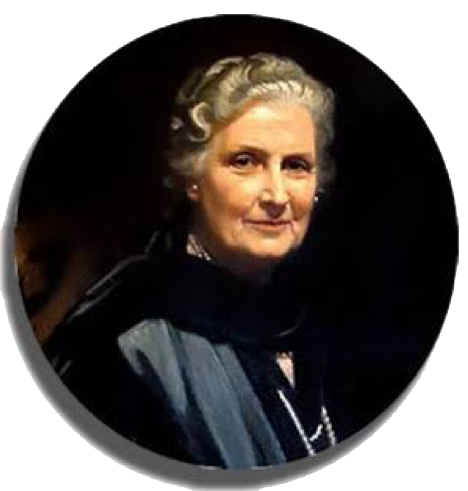Why Montessori? Discover the Difference!
Welcome to Happy Fox, where education is a passion and child development is our mission. Are you curious about what truly sets the Montessori method apart from traditional learning approaches? Allow us to reveal how this unique method transforms children’s lives and why it might be the perfect choice for your exceptional little one.
The History and Pioneers of the Montessori Method
The Montessori method, created by Dr. Maria Montessori, an Italian physician and educator, revolutionized the way we teach children. In 1907, Dr. Montessori opened the first “Casa dei Bambini” in Rome, introducing her innovative approach to education. Nominated for the Nobel Prize and honored with honorary doctorates worldwide, Dr. Montessori was a trailblazer whose research and work reshaped the landscape of education. Her concepts, grounded in respect for the child’s natural development and individual learning paths, remain the foundation of contemporary Montessori education.

Notable Montessori Alumni
Many distinguished individuals, including Sergey Brin and Larry Page (co-founders of Google), Jeff Bezos (founder of Amazon), Gabrielle Union (actress), Will Wright (creator of “The Sims”), Anne Frank (diarist), and Jimmy Wales (co-founder of Wikipedia), have benefited from the Montessori method. Their successes affirm the effectiveness of this approach.
Conventional Education vs. Montessori: Choose the Best Path for Your Child
Aspect
Conventional Education
Montessori Method
Approach to Mistakes
Mistakes are penalized or marked as shortcomings, which can induce stress and fear.
Mistakes are viewed as a natural part of the learning process. Children learn from them without fear of experimentation.
Creativity and Innovation
Rigid curriculum frameworks may stifle creativity and innovation.
High value is placed on creativity; children have the freedom to express their ideas and create.
Approach to Discipline
Discipline enforced through a system of rewards and punishments.
Discipline based on self-management and internal motivation, supporting the development of self-discipline.
Individualization of Teaching
Teaching follows a uniform program for the entire age group, with less consideration of individual needs.
Teaching is tailored to each child’s needs and interests, supporting their unique development.
Testing and Assessment
Focus on tests and grades, which can cause stress and may not reflect a child’s full abilities.
Absence of traditional grades; children are assessed based on progress and skills, reducing stress and supporting natural development.
Role of Collaboration
Emphasis on competition and individual achievements, which can isolate children.
Collaboration and group support are key. Older children teach younger ones, fostering social skills, leadership, and empathy. |
Fixes Time Frames
Strict time frames and lesson schedules may limit flexibility and individual learning pace.
Flexible approach to time allows children to work at their own pace and according to their interests.
Teacher’s Role
Teacher as an authority and central figure in the classroom.
Teacher as a guide and mentor, supporting children in exploration and learning.
Approach to Interests
Centralized control of learning, which may ignore children’s personal interests.
Children are encouraged to explore topics that interest them, increasing motivation and engagement.
Play Materials
Standard toys and games, often less stimulating and uniform.
Montessori materials are diverse, supporting sensory, motor, and cognitive development, stimulating curiosity and activity.
Autonomy
Limited opportunities for decision-making and choosing activities.
Children are encouraged to make decisions and solve problems independently.
Learning Pace
Learning pace set for the entire group, which may be too fast or too slow for some children.
Learning pace adjusted to each child’s needs, allowing for deeper understanding of the material.
Collaboration and Interaction
Individual work with limited opportunities for collaboration and interaction.
Learning pace adjusted to each child’s needs, allowing for deeper understanding of the material.
Asking Questions
Questions may be restricted by rigid curriculum frameworks, stifling curiosity.
Questioning is supported and valued; children are encouraged to explore and seek answers.
Why Choose Montessori for Your Child?
The Montessori method is more than just a teaching approach—it is a philosophy that respects the natural development of the child and supports them in discovering their potential. At Happy Fox, we believe that every child is unique and deserves an education that nurtures their individuality and passions. By choosing Montessori, you are providing your child not just with knowledge, but with skills that will accompany them throughout their life.
Join us at Happy Fox, where every day is filled with discovery and each child thrives in an atmosphere of support and understanding. Discover the difference that the Montessori method can make and watch your child flourish!
